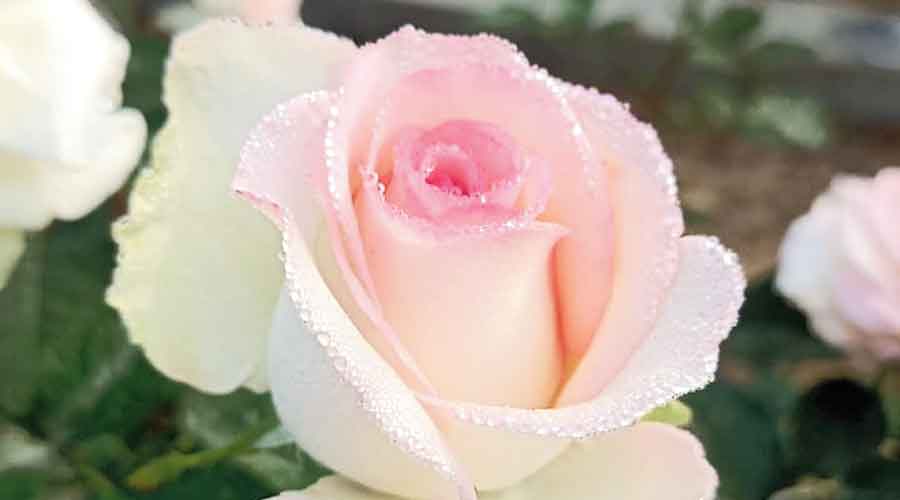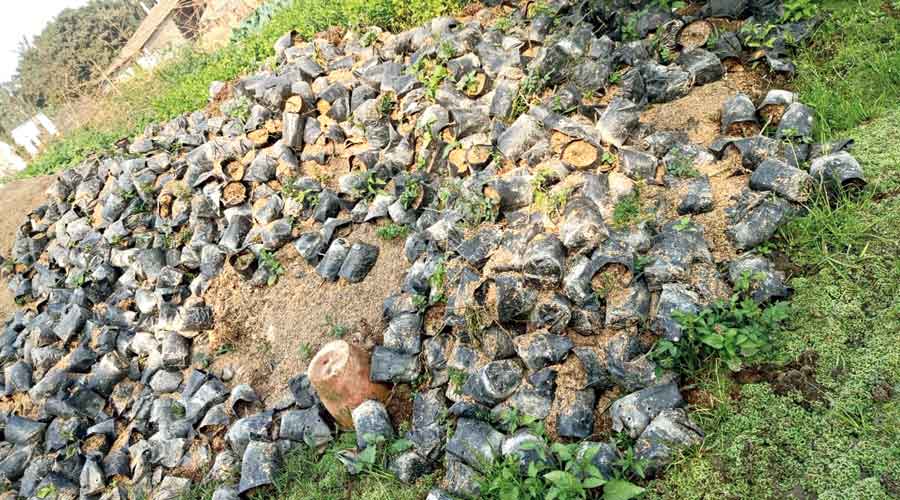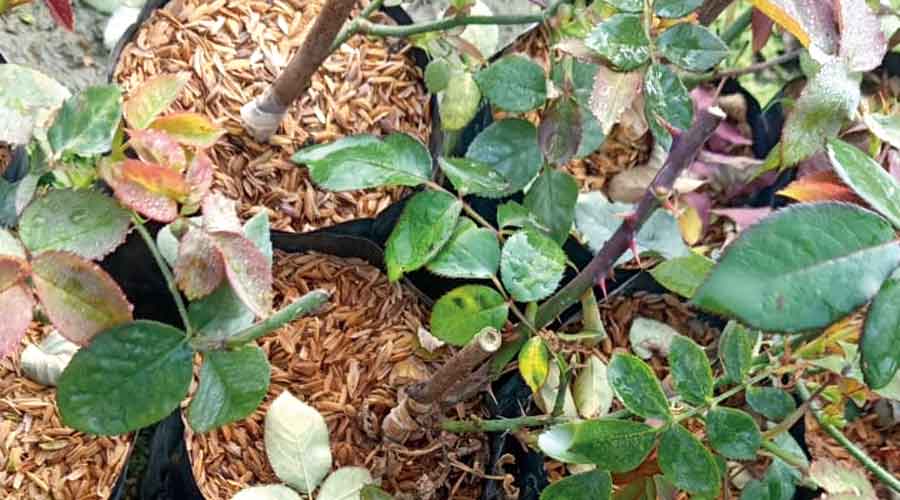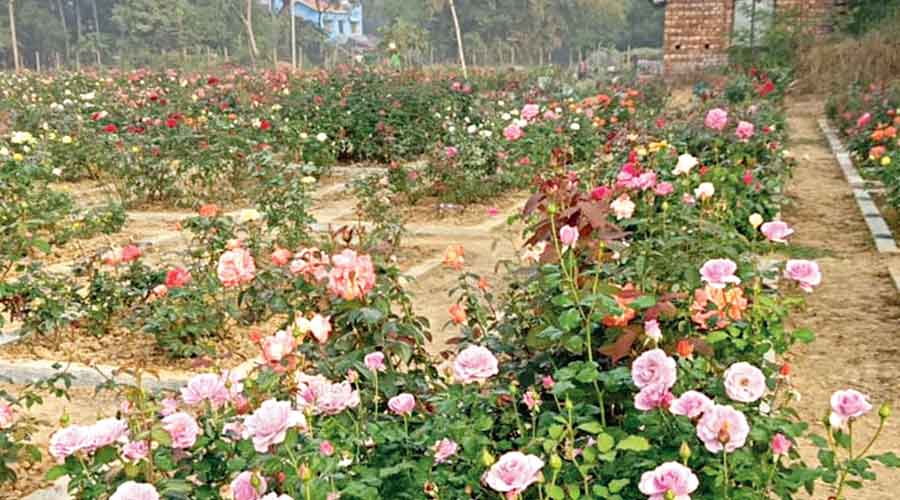A fungal or viral attack is ravaging rose plants across the state. Nurseries in the Kharagpur belt in West Midnapore are particularly affected with reported losses of crores of rupees.
If Amphan had dealt a blow to nursery owners, the pathogen attack has only aggravated the impact.
Pushpanjali Nursery, one of the biggest nurseries at Jakpur village in the Kharagpur belt, has been the hardest hit. The nursery has lost 1.5 lakh rose plants in the attack.
Jakpur, with about 100 nurseries, is often called Rose Village.

A Rose flower at the nursery
Close to Pushpanjali is Kamal Nursery, which has a sales outlet in Bagnan in Howrah. Kamal Nursery has lost 20,000 rose plants.
Sk Muhammed Ali of Green Zone Nursery on EM Bypass reports a similar story.
Much like the coronavirus, the pathogen attack on rose plants has spread across the state.
The first attack was reported in December 2019, said Pranabir Maity of Pushpanjali Nursery, which is spread across 6 acres.

Plants at the nursery after the disease outbreak
“The leaves started turning black and then fell off. We treated the plants with fungicide. But nothing seemed to be working,” said Maity.
A nursery owner from Thailand who visited Pushpanjali in early 2020 suggested some remedies that seemed to have worked for some time. “Then I used an expensive fungicide called Ranman, which costs Rs 1,000 for 40ml. It seemed to be working but now again the plants are dying,” said Maity, who has lost 1.5 lakh plants and pegged his losses at Rs 1.25 crore. Pushpanjali supplies roses to the Agri-Horticultural Society of India as well as the Indian Botanic Garden.
Sk Muhammed Ali of Green Zone is trying out vitamin doses for his rose plants. He calls it a viral attack that has devastated his plants since Amphan. “A new virus is killing my plants,” he said, as did Kamal Chakrabarti of Kamal Nursery. Both reported loss of leaves and blackening of plants.

“Unseasonal rain must have been responsible for the viral attack,” Chakrabarty said. He has lost 20,000 rose plants that sell for Rs 10 each. His loss stands at Rs 2 lakh.
S.P. Panda, a scientist with the Indian Botanic Garden who is in charge of the newly laid out rosarium, said: “We have managed to keep our plants alive with fungicide. None of our plants has been affected. Many of the rose growers use mulching sheets to keep weeds at bay. These are synthetic sheets laid at the base of the plants so that weeds do not grow. We at the botanic garden don’t use mulching sheets. Instead we deweed the rosarium manually. Thankfully, we have been able to avert the attack.”











